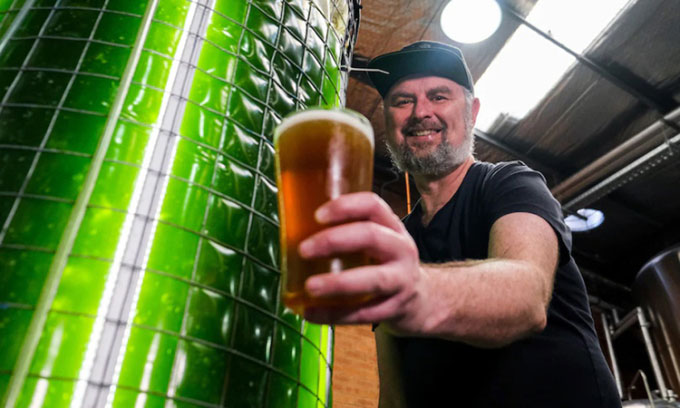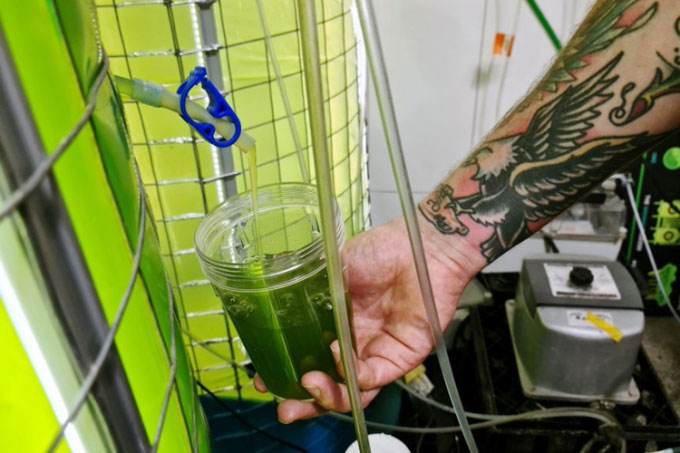Two 400-liter bioreactors at Young Henrys Brewery are filled with microalgae to absorb CO2 and produce oxygen like green plants.
Young Henrys Brewery in Sydney, Australia, aims to combat climate change and seeks ways to reduce carbon emissions. A typical green plant can take up to two days to absorb the carbon produced during the fermentation of six cans of beer.

Richard Adamson, co-founder of Young Henrys, hopes to change the way we respond to climate change. (Photo: ABC News)
Recognizing that natural absorption occurs too slowly, the co-founders of Young Henrys turned to scientists for ways to accelerate this process. With the help of experts from the Climate Change Cluster research center at the University of Technology Sydney (UTS), they found an effective solution, reported RTE on November 18.
They installed two 400-liter bioreactors filled with trillions of microalgae capable of absorbing CO2 emitted from the beer fermentation process and converting it into oxygen, similar to green plants. Each bioreactor occupies about one square meter but produces as much oxygen as two hectares of land covered in trees, according to Oscar McMahon, co-founder of Young Henrys.
“We could tear down the entire brewery and plant trees, but those trees would take years to absorb carbon and produce as much oxygen as these two bioreactors. We can start the reactors in a week, and they are ready to produce oxygen. This is a remarkable solution for urban oxygen production and carbon retention,” McMahon said.

Microalgae sample from the bioreactor. (Photo: Reuters)
In addition to beer, the team of experts at Young Henrys, UTS, and Meat & Livestock Australia is also collaborating to explore whether algae can offset methane emissions from Australia’s livestock industry. Currently, Young Henrys has been sending surplus barley to farmers for animal feed. The experts hope that adding microalgae to the feed could reduce methane emissions from cattle by about 20%.
Algae will play a crucial role in the future, in a circular and sustainable economy. Carbon will be reused, and waste from this industry will become important products for other sectors, according to Professor Peter Ralph, executive director of the Climate Change Cluster.
“Instead of digging something up to manufacture a product and then throwing it away, we will recycle it, using carbon efficiently. I believe this is the future. Industries will want to use recycled carbon rather than fossil carbon,” he said.

















































